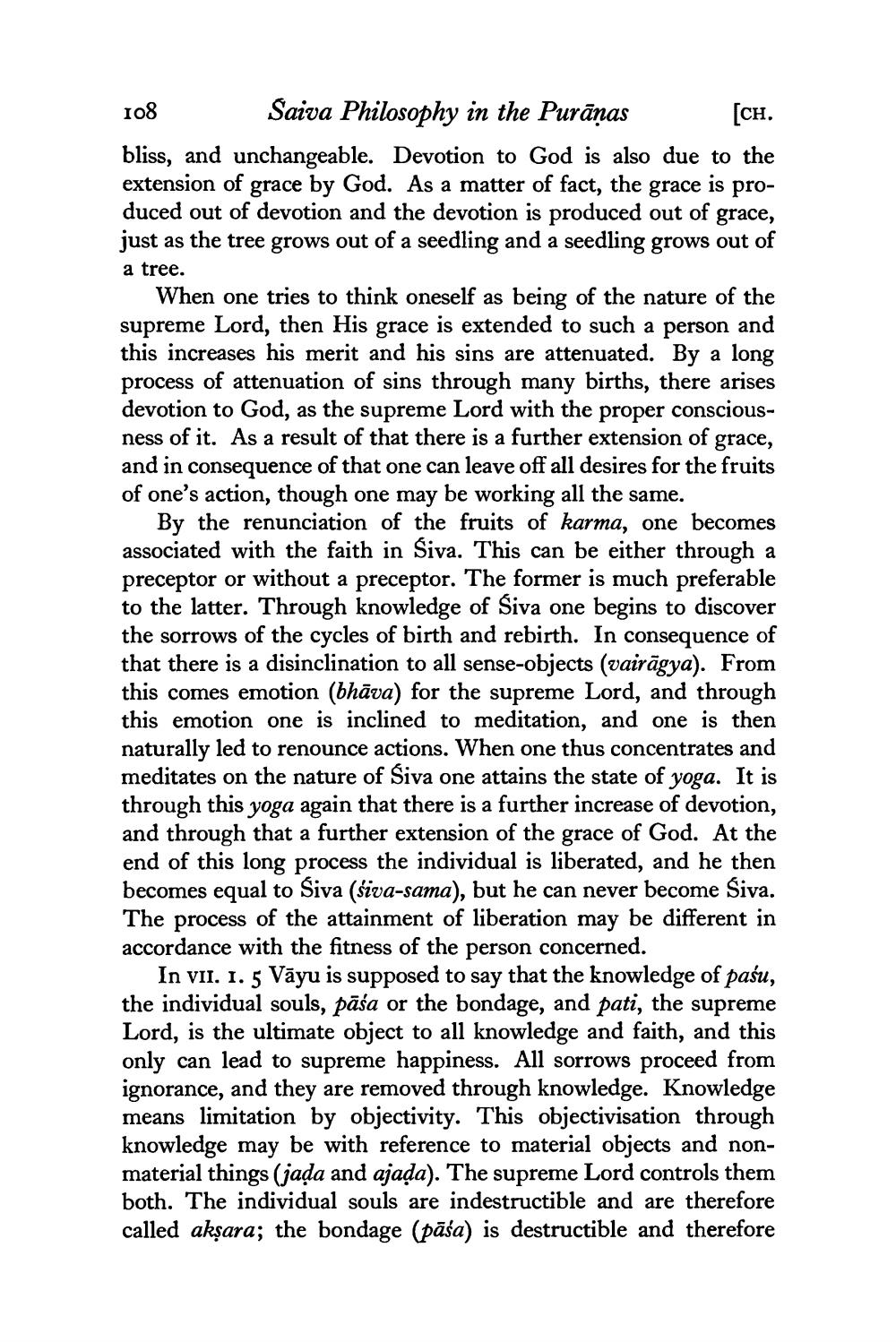________________
108 Saiva Philosophy in the Purāņas [CH. bliss, and unchangeable. Devotion to God is also due to the extension of grace by God. As a matter of fact, the grace is produced out of devotion and the devotion is produced out of grace, just as the tree grows out of a seedling and a seedling grows out of a tree.
When one tries to think oneself as being of the nature of the supreme Lord, then His grace is extended to such a person and this increases his merit and his sins are attenuated. By a long process of attenuation of sins through many births, there arises devotion to God, as the supreme Lord with the proper consciousness of it. As a result of that there is a further extension of grace, and in consequence of that one can leave off all desires for the fruits of one's action, though one may be working all the same.
By the renunciation of the fruits of karma, one becomes associated with the faith in Siva. This can be either through a preceptor or without a preceptor. The former is much preferable to the latter. Through knowledge of Siva one begins to discover the sorrows of the cycles of birth and rebirth. In consequence of that there is a disinclination to all sense-objects (vairāgya). From this comes emotion (bhāva) for the supreme Lord, and through this emotion one is inclined to meditation, and one is then naturally led to renounce actions. When one thus concentrates and meditates on the nature of Siva one attains the state of yoga. It is through this yoga again that there is a further increase of devotion, and through that a further extension of the grace of God. At the end of this long process the individual is liberated, and he then becomes equal to Siva (siva-sama), but he can never become Siva. The process of the attainment of liberation may be different in accordance with the fitness of the person concerned.
In VII. 1. 5 Vāyu is supposed to say that the knowledge of pašu, the individual souls, pāśa or the bondage, and pati, the supreme Lord, is the ultimate object to all knowledge and faith, and this only can lead to supreme happiness. All sorrows proceed from ignorance, and they are removed through knowledge. Knowledge means limitation by objectivity. This objectivisation through knowledge may be with reference to material objects and nonmaterial things (jada and ajada). The supreme Lord controls them both. The individual souls are indestructible and are therefore called akşara; the bondage (pāśa) is destructible and therefore




